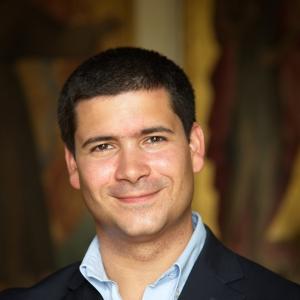
I am a historian of early modern culture and science. I am especially interested in the social and intellectual interactions between disciplines such as physics, medicine, and theology in early modern Europe and its global expansion. I am currently concluding a book about the emergence of the new sciences in seventeenth-century Europe through the fascinating career of Nicolaus Steno. I argue that Steno’s greatest innovation was introducing methods and ideas from various disciplines, especially mathematics, and chymistry, into anatomy. Undergirding this variety of approaches was Steno’s ability to forge friendships with scholars, princes, artisans, and women. I use Steno’s career to uncover novel interactions between science and religion. My second project aims to improve our historical knowledge of how mathematicians, anatomists, and patrons cooperated in the early 1600s. This project builds upon my previous research on early modern Italy and the Iberian oceanic expansion. I am also interested in science and religion, for which I am currently co-organizing two workshops at the Max Planck in Berlin.
- Deborah Loeb Brice Fellowship, Villa I Tatti – The Harvard University Center for Italian Renaissance Studies (from 2022 to 2023)
- Research Fellow, Max Planck Institute for the History of Science (from 2021 to 2022)
- Visiting Doctoral Student, Scuola Normale Superiore di Pisa (2019)
- Ph.D. in History of Science and Technology, Johns Hopkins University (from 2016 to 2021)
- M.Sc. in Physics, Instituto Superior Técnico, University of Lisbon (from 2014 to 2016)
- B.Sc. in Engineering Physics, Instituto Superior Técnico, University of Lisbon (from 2008 to 2014)
- History of Science
- Early modern European intellectual and cultural history, especially in Italy and Iberia
- Early modern religion
- “Who Was Borelli Responding To? Nicolaus Steno in De motu animalium (Rome, 1680-1)” Physis: Rivista Internazionale di Storia della Scienza LVII:2 (2022), 431-447.
-
“Physico-Mathematics and the Life Sciences: Experiencing the Mechanism of Venous Return, 1650s-1680s.” Annals of Science 79:4 (2022), 442-467.
-
“Drawing Muscles with Diagrams: How Novel Dissection Cuts Inspired Nicolaus Steno’s Myology (1667).” Notes and Records of the Royal Society (2022). (co-authored with Troels Kardel, MD).
-
“Friendship Fostered by Poisons: The Collaboration of Nicolaus Steno and Francesco Redi” in Poison. Knowledge, Uses, Practices – Micrologus Library 112, eds. C. Mordeglia and Agostino Paravicini (Florence: SISMEL–Edizioni del Galluzzo, 2022), 325-346.
-
“Material Piety: Science and Religious Culture in Seventeenth-Century Portugal” Renaissance Quarterly 74.4 (2021), 1162-1209. (Winner of ASPHS Prize for Best Article in Portuguese History for 2022)
-
“From Flanders to Lisbon to the Mughal Empire: Hendrick Uwens and the Mathematical Backstage of a Jesuit Missionary’s Life” Early Science and Medicine 25 (2020), 224-249
Associate Member, ERC Rutter Project, University of Lisbon
- Lila Wallace Reader’s Digest Lecture Program Grant, Villa I Tatti (July 2023)
- DFG Conference Grant (July 2023)
- A. H. Oliveira Marques Prize for best article in Portuguese history for 2022 (Association for Spanish and Portuguese Historical Studies)
- Villa I Tatti Year Fellowship; Harvard University (2022-2023)
- Huntington Library Fellowship at Lincoln College, University of Oxford (April 2023)
- Postdoctoral Fellowship Max Planck Institute for the History of Science (2021-2022)
- Dean’s Teaching Fellowship; Johns Hopkins University; (2021, waived)
- Predoctoral Fellowship; Max Planck Institute for the History of Science (2020)
- Charles Singleton Research Fellowship, Johns Hopkins University (2020)
- Fulbright Scholarship (2016-2021)
- Harry Woolf Fellowship, Johns Hopkins University (2016-2021)
- Santorio Prize Fellowship for Medical Humanities and Science; Institutio Santoriana, Pisa, Italy (2019)